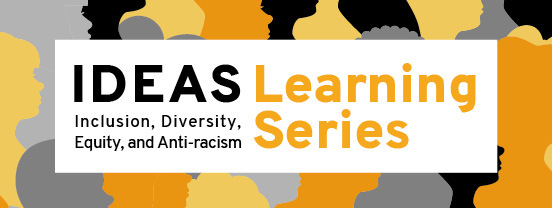
MedBiquitous Community Connection - 2020
-
Register
- User - Free!
“MedBiquitous Community Connection” is a series of free one-hour webinars featuring health professions educators and technology innovators from around the globe. “MedBiquitous Community Connection” provides a forum for community experts to share how digital technologies are promoting improvement and better outcomes across the continuum of health professions education. A portion of each webinar will reserve time for a brief Q&A session, allowing attendees the opportunity to dialogue with guest speakers.
-
Contains 2 Component(s)
“MedBiquitous Community Connection” is a series of free one-hour webinars featuring health professions educators and technology innovators from around the globe.
In the summer of 2019, the closure of Philadelphia’s Hahnemann University Hospital resulted in the largest displacement of residents and fellows in the history of the United States. This session summarizes how the Federation of State Medical Boards (FSMB) became involved in the Hahnemann closing on the heels of releasing the research paper “Healthcare and Digital Credentials: Technical, Legal, and Regulatory Considerations.”
FSMB is working to promote the acceptance of digital credentials in the licensing and credentialing communities. In this session, FSMB describes the journey to implement portable physician credentials outlined in the research paper, the need for standards, and the current state of digital credentials.
“MedBiquitous Community Connection” is a series of free one-hour webinars featuring health professions educators and technology innovators from around the globe. “MedBiquitous Community Connection” provides a forum for community experts to share how digital technologies are promoting improvement and better outcomes across the continuum of health professions education. A portion of each webinar will reserve time for a brief Q&A session, allowing attendees the opportunity to dialogue with guest speakers.

Cyndi Streun, MS
Vice President of Information Services, Federation of State Medical Boards
Cyndi Streun is the Vice President of Information Services at FSMB. Cyndi has earned a computer science engineering degree from The University of Texas at Arlington and a master’s degree in software engineering from The University of Texas at Dallas. She has a comprehensive background in master data management, particularly as it relates to organizational changes required to create and sustain enterprise data and analytics capabilities. She has over 13 years of Healthcare Information Technology experience.

Michael Dugan, MBA
Chief Operating Officer, Federation of State Medical Boards
Michael Dugan is the COO of the Federation of State Medical Boards (FSMB). Mike has been with FSMB since June of 2010. Mr. Dugan received a bachelor’s degree from The Ohio State University and a Master of Business Administration from Southern Methodist University. He has over 25 years of Healthcare Information Technology (IT) and operations experience.
-
Contains 2 Component(s)
“MedBiquitous Community Connection” is a series of free one-hour webinars featuring health professions educators and technology innovators from around the globe.
12:00-12:30pm ET - Variability in Data Presentation in the Medical Student Performance Evaluation (MSPE)
Every year, medical schools across the country spend a significant amount of time composing the Medical Student Performance Evaluation (MSPE) for graduating students. The MSPE contains data on student performance across the first three years and at times, the early fourth year of medical education. It is one of many important items residency program directors use when selecting incoming interns.
Over the past few years, prompted by the 2016 recommendations of the AAMC MSPE Task Force, the medical education community has witnessed a change in the content of the MSPE. As reported by Giang, the majority of US medical schools have adopted the task force guidelines. While this adoption is occurring, wide variability still exists in the actual content and display of data within the MSPE.
To better understand the variability we have created a 23-item data abstraction tool to code key MSPE data components. We have already used this tool to evaluate MSPEs written for the 2019 graduates of over 95% of US medical schools. We are now in the process of continuing this analysis for the 2020 graduates. We will present the results of the coding process, focusing on the variations in data presentation in the following areas:
- Clerkship grades, including comparative performance;
- Overall comparative performance, including summary adjectives; and
- Competency-level performance data.
12:30-1:00pm ET - A Generative Case System That Reflects Our Patient Population
After cataloging the patient demographics in our cardiac and respiratory pre-clerkship course, we recognized a bias towards male patients, and an absence of ethnic descriptors unless clinically relevant. Utilizing a patient case generation system in use at Cumming School of Medicine, we further developed a mechanism that generated pulmonary function tests that were based on patient height, weight and gender. This allowed us to present students with a limitless supply of pulmonary function test results across a patient population that was reflective of Statscan data for the Canadian population. This intervention has generated 2316 patient cases and is open access.
This system, cards, in addition to the above material has now generated over 1 million cases. By using a system to manage these variables whenever they are not clinically relevant, we are able to tackle a long standing issue in our curriculum.
This webinar will discuss how we recognized the bias in our patient case content, and recognize how components of patient case content that can be freed of inherent gender and ethnicity bias. Attendees will be able to see a mechanism for generating patient case content that is based on population statistics.
“MedBiquitous Community Connection” is a series of free one-hour webinars featuring health professions educators and technology innovators from around the globe. “MedBiquitous Community Connection” provides a forum for community experts to share how digital technologies are promoting improvement and better outcomes across the continuum of health professions education. A portion of each webinar will reserve time for a brief Q&A session, allowing attendees the opportunity to dialogue with guest speakers.

Judith Brenner, MD
Associate Dean of Curricular Integration and Assessment, Donald and Barbara Zucker SOM at Hofstra/Northwell
Judith Brenner, MD is an internist and the Associate Dean for Curricular Integration and Assessment at the Zucker School of Medicine at Hofstra/Northwell in New York where she oversees the development and implementation of a rigorous assessment and evaluation system throughout the educational program. She is responsible for the collection and visualization of data relevant to the mission of the school. This includes data used to improve the learning environment, address compliance and regulatory issues, support continuous quality improvement, and promote educational scholarship. She is interested in identifying best practices in assessment in undergraduate medical education and in identifying students at risk for poor performance with the hope of defining prevention strategies. The MSPE is a particular area of interest because of its role in communicating assessment data across the continuum of medical education.
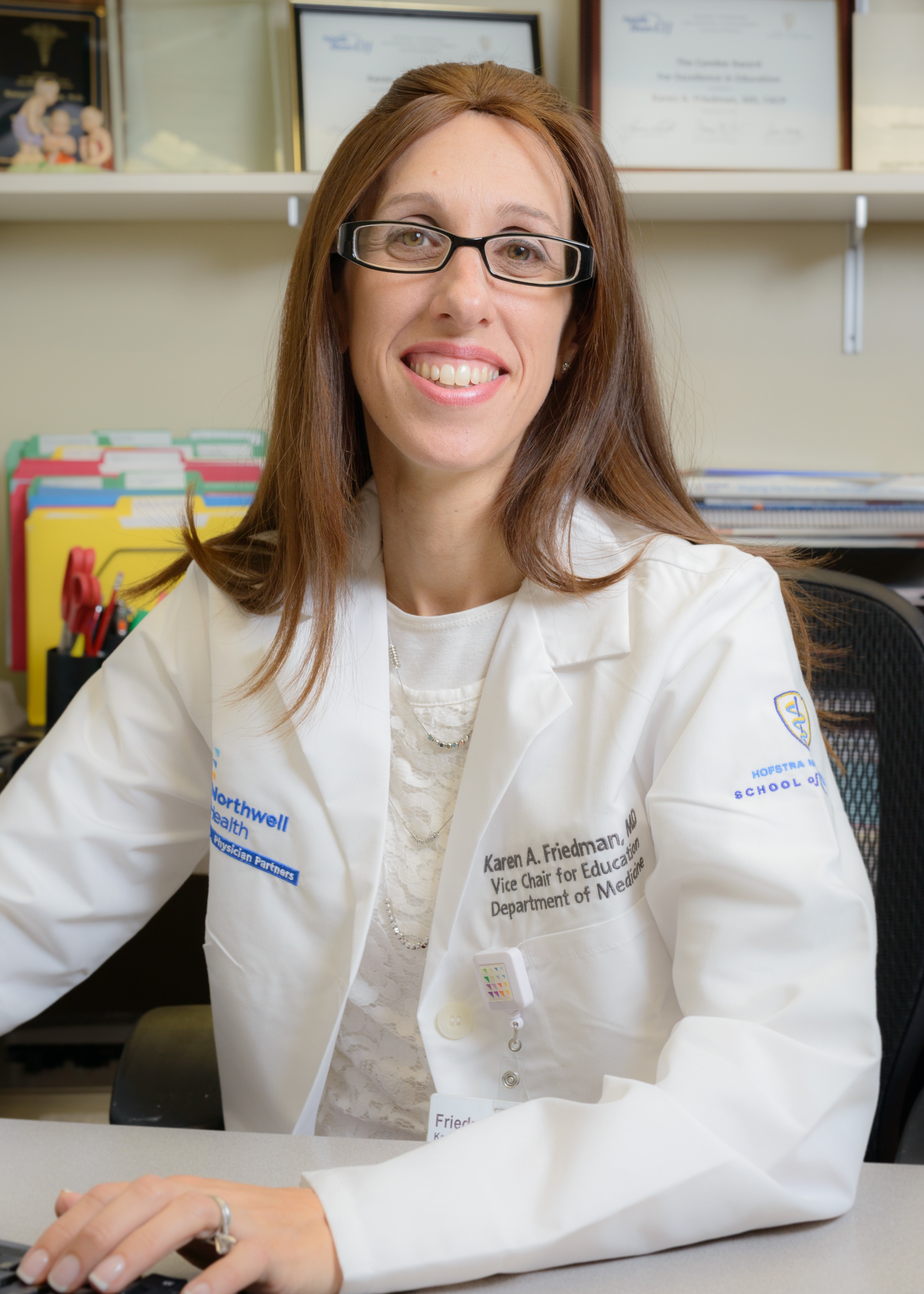
Karen Friedman, MD, MS-HPPL, FACP
Vice Chair for Education, Professor of Medicine, Donald and Barbara Zucker SOM at Hofstra/Northwell
Dr. Karen Friedman is the Vice Chair for Education and Residency Program Director for the Zucker SOM program in Internal Medicine at North Shore University Hospital and Long Island Jewish Hospital. She received her MD degree from SUNY Downstate and her Masters in Health Professions Pedagogy and Leadership from Hofstra University. She has been on faculty in the Department of Medicine at North Shore Hospital as a Hospitalist since 2005 and is a Professor of Medicine. Dr. Friedman’s career and research has been dedicated to medical education. She has published in and presents nationally on novel residency curricula and assessment methods in competency based medical education. She has studied both the use of milestones to assess trainees competency as well as the use of Dashboards in medical educations. She is the author of The Informed Patient- published in 2017 by Cornell University Press.

Jason Brenner
Research Associate and College Student, University of Michigan
Jason Brenner is a rising senior pre-medical student at the University of Michigan (UM) and a volunteer research assistant at the Zucker SOM. He is studying Biopsychology, Cognition, and Neuroscience at UM and has a minor in Business from the Ross School of Business. Jason has been involved with research at UM since his freshman year and is excited to contribute to this project with his efforts in data abstraction and analysis.

Mike Paget
Manager, Academic Technologies, University of Calgary, Cumming School of Medicine
Mike Paget is the manager of the Academic Technologies team at the Cumming School of Medicine. As a researcher, his focus is on clinical problem solving, assessment and cognitive load management. The Academic Technologies team focuses on system interventions that intersect student, faculty and staff needs specific to the MD program.

Scott Steil
Developer, University of Calgary, Cumming School of Medicine
Scott Steil has long been a champion of online software. After getting his degree in Computer Science, he focused his career working with web technologies believing its accessible, distributed, and inter-connected nature would be foundational in all bleeding-edge software. As a lead developer on the Academic Technologies team at the Cumming School of Medicine, he is proud to bring this passion advancing meaningful interventions to medical education.
-
Contains 2 Component(s)
“MedBiquitous Community Connection” is a series of free one-hour webinars featuring health professions educators and technology innovators from around the globe.
12:00-12:30pm ET - A Modest Proposal: mapping out a strategy to extend our XML standards to provide for JSON
Q: Why bother to translate? XML is mature, robust, and universally understood! A: XML is all these things. It is also brittle, complex, and difficult to implement. It also is heavy in terms of transactional load and processing. This is one of the reasons for the migration of most common platforms and models to tools and language constructs as JSON as the basis for building web APIs.
Q: Would this mean the discarding of the existing standard? A: Absolutely not! This is an extension of the existing work, not a conversion. The ideal goal would be to allow the choice of delivery in a data transaction to be XML, JSON, or indeed whatever the next generation of lightweight tools turns out to be that we can’t yet foresee. The challenge isn’t the translation to these tools; the really hard work is in the creation of a migration map from the XML to anything else, that will be both flexible and comprehensive.
Q: OK. But this sounds like a ton of work. Why fix something if it isn’t broken? A: Great question. But it is clear that while the Curriculum Inventory Standard functions for its initial purpose (the AAMC CIR upload), there is quite limited adoption more broadly, whether for additional uses in Medical Education (data interoperability transfer, organizational coordination, data transparency and sharing) or use in other health sciences. The addition of a model for the standard that is based around contemporary web data sharing models provides an entry point for many other potential applications of this and other standards, and positions the MedBiquitous family of standards for broader, more robust adoption and support.
12:30-1:00pm ET - Innovation is the enemy of Sustaining Effort. Or is it?
"Work fast and break things" - we've heard this valley mantra so many times in the last decade so as to make it an embarrassing cliché. And it is an approach which is antithetical to the maintenance of the educational enterprise. We make great effort to sustain continuity of experience and process for students (and educators and staff), which means the introduction of innovation, novelty, and risk in the IT enterprise supporting education can be not only disruptive, but severely damaging, with repercussions that stretch far beyond the boundaries of the technology domain. In this discussion, we present some of the challenges of integrating better practices of innovation, experimentation, differentiation and risk into the risk-averse culture of educational technology.
“MedBiquitous Community Connection” is a series of free one-hour webinars featuring health professions educators and technology innovators from around the globe. “MedBiquitous Community Connection” provides a forum for community experts to share how digital technologies are promoting improvement and better outcomes across the continuum of health professions education. A portion of each webinar will reserve time for a brief Q&A session, allowing attendees the opportunity to dialogue with guest speakers.

Sascha Benjamin Cohen, MA
Director, Technology Strategy & Development, UCSF School of Medicine
Director of Strategic Development for IliosSascha is the Director of Technology Strategy & Development for Technology Enhanced Education at the UCSF School of Medicine, as well as the Director of the Ilios Project, a competency-based curriculum management tool designed for and used by schools around the world to help achieve excellence in medical and health education.
Holding degrees in religion, comparative culture, and Middle Eastern history, arts and language, Sascha’s research is currently focused on the development of sustainable models for technology-enhanced education and curriculum development.

Jonathan Johnson, MA
EdTech Operations and Support Manager, UCSF Library
Lead Developer, Ilios ProjectJon manages the development and support teams for the UCSF Collaborative Learning Environment a collection of related technologies that facilitate technology enhanced education. He is also the lead developer for the Ilios Project providing competency based curriculum management to dozens of health science programs around the world. In addition to being an expert web application stack developer Jon is a practiced builder, consumer, and advocate for open data and standard based APIs.
Jon continuously seeks to merge his graduate degree and professional experience in higher education administration with the promise of technology to design better teaching and learning services in support of UCSF's mission to advance health worldwide.
-
Contains 2 Component(s)
“MedBiquitous Community Connection” is a series of free one-hour webinars featuring health professions educators and technology innovators from around the globe.
12:00-12:30pm ET - Creating a Low Cost Analytics Solution for Medical Education Data
The technology team at the School of Medicine at University of Virginia is updating the legacy systems by using low cost or open source technology to create a low cost alternative with similar functionality. During this process they are also taking the opportunity to create data integrity and data validation across various systems. The technology team is also building a custom BI solution using Python, Flask, Plotly, Tabulator and Visual code. The presenter will share the overall strategy of updating the legacy systems, data approach and the simple pattern that is used to create a web page that includes a data visualization and a data table.
12:30-1:00pm ET - Development Process for UCF's HoloLens Augmented Reality Application on Cardiac Disorders
This presentation will discuss how UCF's AR application for cardiac disorders was developed - from idea to completion. This AR application was developed for the Microsoft HoloLens. The goal of the application is to integrate heart anatomy and physiology instructions. Learners are able to manipulate cardiac rhythm while visualizing contractions, electrical activity and blood flow. Built-in flashcards and clinical cases are presented within the application to direct learning and provide a mechanism for self-assessment.
“MedBiquitous Community Connection” is a series of free one-hour webinars featuring health professions educators and technology innovators from around the globe. “MedBiquitous Community Connection” provides a forum for community experts to share how digital technologies are promoting improvement and better outcomes across the continuum of health professions education. A portion of each webinar will reserve time for a brief Q&A session, allowing attendees the opportunity to dialogue with guest speakers.
Aneet Bhattal
Manager, Business Intelligence, University of Virginia School of Medicine
Aneet has over 20 years of experience in software design with a passion for data. She has lived and worked in four different continents and is a lifelong learner. She has built software for corporate performance management and business intelligence. A strong information technology professional who has directed day-to-day activities of engineering and analytics teams across multiple data domains, she is experienced at customer engagements and briefing management. Aneet is also an experienced and effective analytics and reporting leader in the medical student, finance, human resources, space and research funding domains.
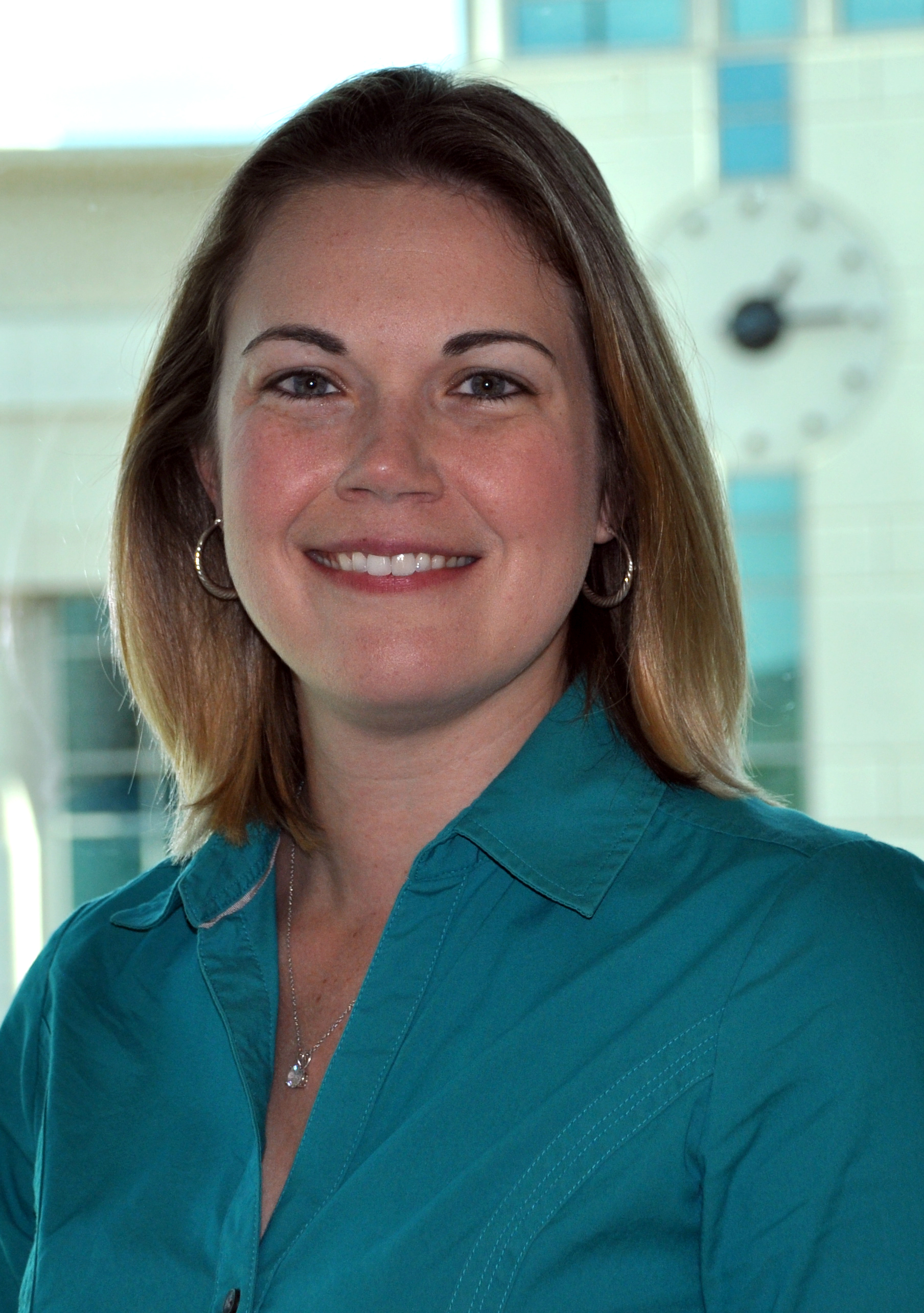
Melissa Cowan, MA
Instructional Learning Designer, University of Central Florida College of Medicine
Melissa Cowan is an instructional learning designer at the University of Central Florida (UCF) College of Medicine and the project manager for the UCF cARdiac Hololens app. She has a background in multimedia and graphic design and a master’s degree in instructional design and technology with an emphasis on e-learning. She is also Lean Six Sigma Green Belt certified. In her role, Melissa collaborates with faculty, staff, and students to develop, edit, and publish pedagogically sound instructional materials for face-to-face and online delivery using various applications such as Adobe Creative Cloud, Articulate 360, Camtasia, and Canvas LMS. Melissa has collaborated with UCF COM faculty on various research projects including the use of e-portfolios in medical education, small-group engagement, the use of augmented reality in medical education, gamification for pharmacology, and clinical reasoning skills. Prior to joining the UCF College of Medicine in 2012, Melissa worked for L-3 Coleman Aerospace as a multimedia specialist and records retention coordinator.
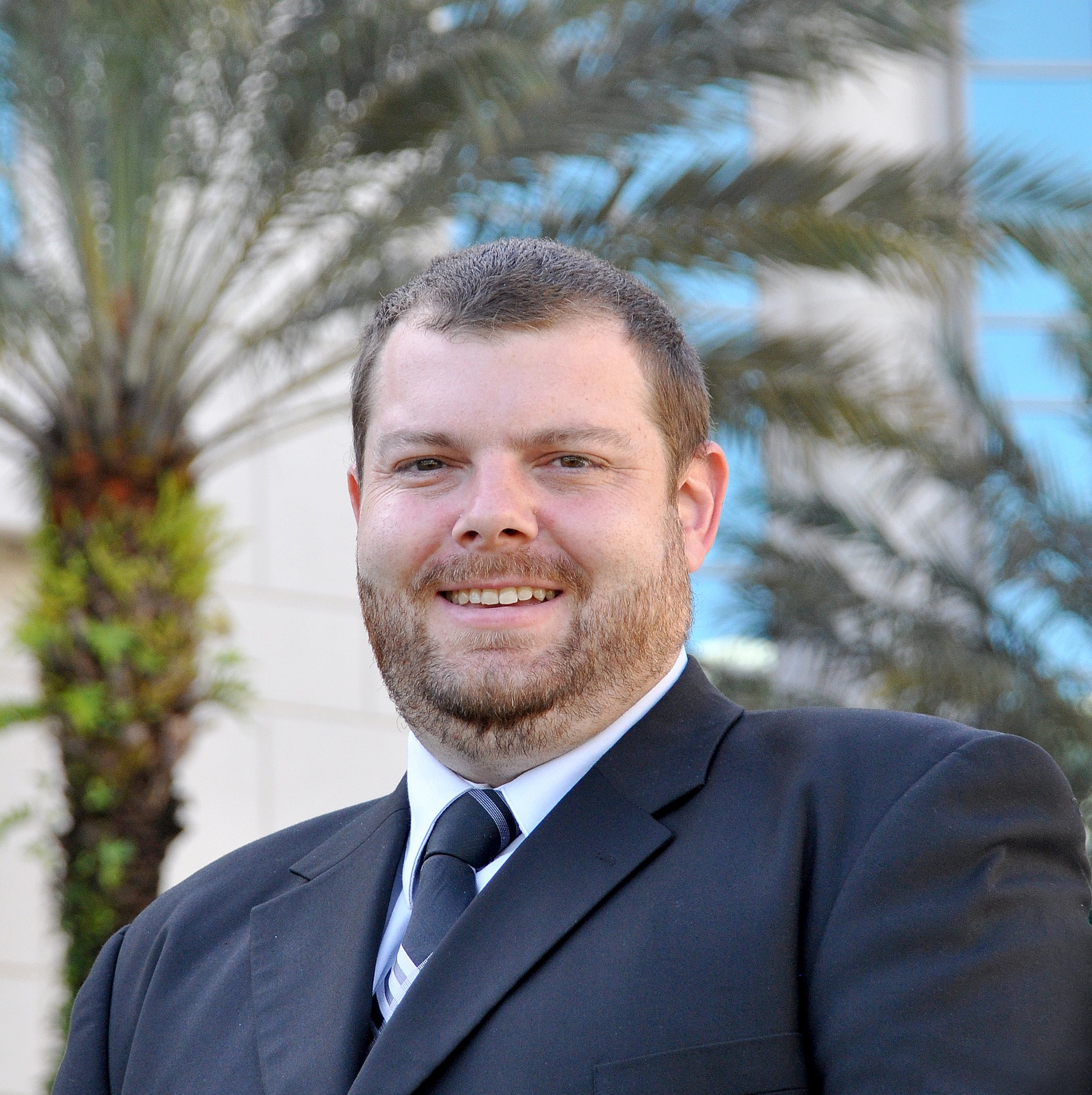
Michael Callahan, EdD
Director of Knowledge Management, University of Central Florida College of Medicine
Dr. Callahan is the Director of Knowledge Management at the University of Central Florida (UCF) College of Medicine. In his role, he oversees the college's curriculum database, data warehouse, reporting systems, AR/VR applications, AI-Driven development, and provides data-driven models. Dr. Callahan and his team build and maintain routine and ad hoc reports taking advantage of many different platforms to ensure smooth delivery of data while ensuring the data is secure and follows university, state, and federal policies and procedures. He also provides data interpretation to support the many administrators and departments within the college with their data-related questions. To accomplish this, Dr. Callahan works very closely with the Assessment Office, Educational Technology, and IT office. Prior to joining the UCF College of Medicine, Dr. Callahan served as the Director of Information Systems for the UCF Burnett Honors College and has been working with university data for almost 20 years.
-
Contains 2 Component(s)
“MedBiquitous Community Connection” is a series of free one-hour webinars featuring health professions educators and technology innovators from around the globe.
11:00am-11:30am ET - Driving the Golden Spike that Unites Learning Outcomes with Teaching Activities
In 2018, 84% of medical schools reported being in curriculum renewal. Implementation of a modern curriculum, defined by Irby, Cooke, and O’Brien (2010), demands an infrastructure to collect, aggregate, and report student performance data. The long-standing model of medical education (2 years of classroom followed by 2 years of clinical apprenticeship) required little attention to individual students’ progress. Curricular modifications to implement contemporary, outcomes-based education focus on individualization of content and delivery. In this model, data about students’ performance is the unifying element of teaching and learning. This session will present logic and conceptual technical models for curriculum change and explicate the value of data to successfully execute those changes.
11:30am-12:00pm ET - Data Sharing and Collaboration for Health Professions Education and Credentialing
Data standards allow us to share and collaborate across silos and systems. We often hear that data standards are intimidating or only for the tech savvy. We want to help demystify what data standards are and how they can help in such a turbulent and unprecedented time.
We invite you to come learn about the fundamentals of data standards and how they enable collaboration and sharing for education administration and accreditation; teaching activities and educational content; as well as credentials and certification. The common language that data standards provide improve costs and efficiency which is greatly needed in our current resource limited environment.
“MedBiquitous Community Connection” is a series of free one-hour webinars featuring health professions educators and technology innovators from around the globe. “MedBiquitous Community Connection” provides a forum for community experts to share how digital technologies are promoting improvement and better outcomes across the continuum of health professions education. A portion of each webinar will reserve time for a brief Q&A session, allowing attendees the opportunity to dialogue with guest speakers.
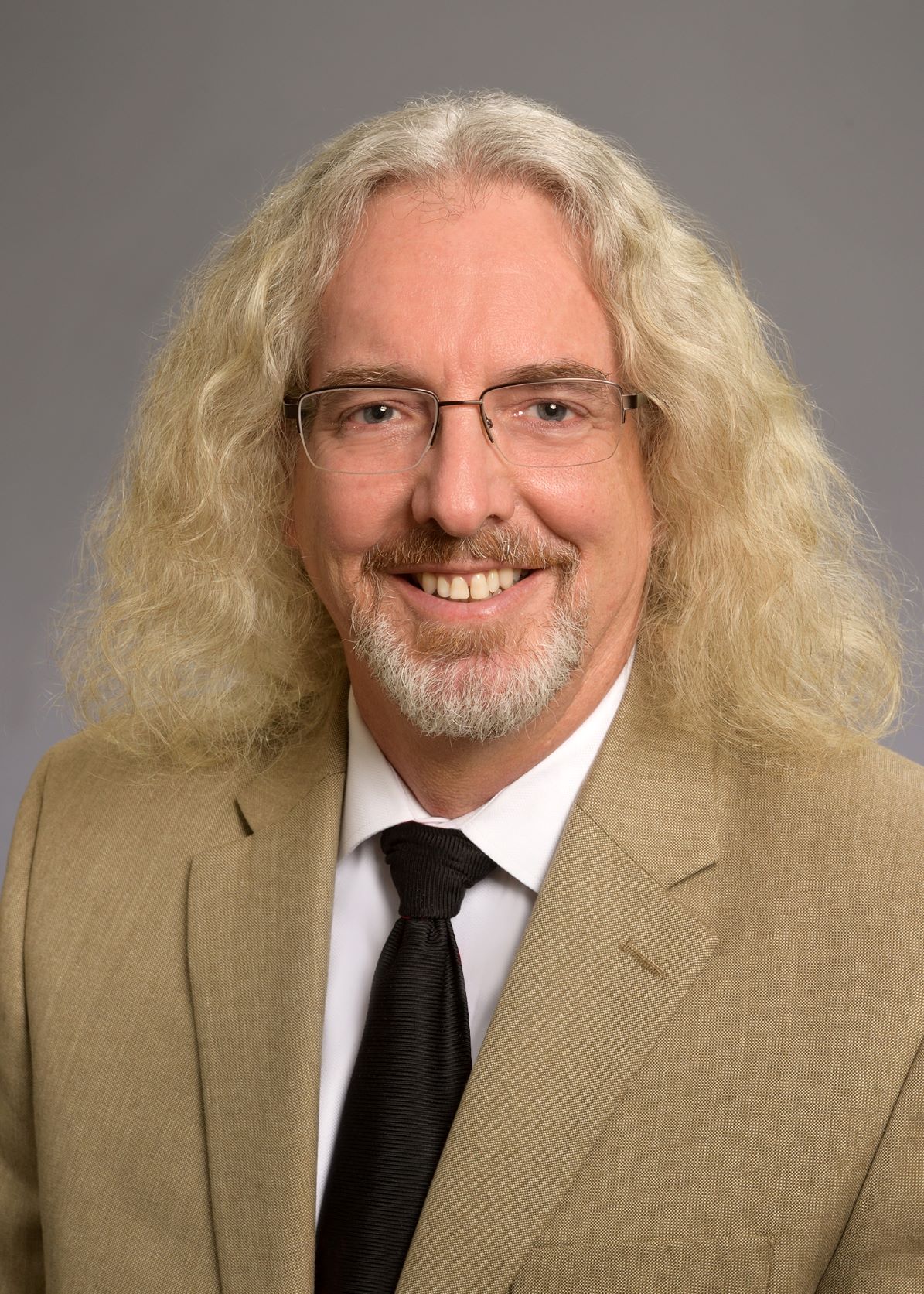
Hugh A. Stoddard, MEd, PhD
Assistant Dean for Medical Education Research, Emory University School of Medicine
Hugh Stoddard, MEd, PhD, is the Assistant Dean for Medical Education Research at Emory University School of Medicine and a Professor in the Department of Medicine. Prior to joining the Emory faculty in 2013, he was the Assistant Dean for Medical Education at the University of Nebraska College of Medicine where he also held the position of Director of the Curriculum and Educational Research Office.
Dr. Stoddard earned his PhD in Educational Studies (Administration, Curriculum, and Learning) and his Master of Education (Economics Education) from the University of Nebraska – Lincoln. He received his Bachelor of Arts from St. Olaf College in Philosophy and Anthropology. Before launching his career in medical education research in 2004, he was a high school teacher and coach in Nebraska, Saudi Arabia, and Colombia.
Dr. Stoddard is a member and contributor to the American Educational Research Association, the National Council on Measurement in Education, the Association of American Medical Colleges, and the Society of Directors of Research in Medical Education. He was elected President of SDRME 2009-12, the Chair of The Generalists in Medical Education 2017-2020, has been the Co-Chair of the MedBiquitous Curriculum Inventory Working Group since 2014, and was Program Chair for AERA Division I Annual Meeting in 2015.
Dr. Stoddard’s primary research interests include: organization of educational programs and educational quality improvement, assessment of medical student performance, increasing the number of medical students from underrepresented groups, and implementation of educational technology.

Jess Bowling, BFA, CTS, CSM
IT Manager (Curricular Support), Emory University School of Medicine
Jess Bowling is an IT Manager with the Emory School of Medicine and leads the Office of Information Technology Services’ Curricular Support team, which is responsible for providing technical support and consulting for systems relating to the education component of the School of Medicine’s tripartite mission. A part of the Emory community since 2007, Jess has designed and implemented a spectrum of IT and audiovisual solutions pertaining to medical simulation, standardized patient-based education, video-based learning, student computing, and online assessment.
Having recently earned a certificate in Artificial Intelligence Management from Georgetown University’s School of Continuing Studies, Jess’ recent activities include critically analyzing how AI, machine learning, and deep learning systems can be incorporated into medical education and academic health programs for formative and summative purposes. As an MBA candidate at Boston University’s Questrom School of Business, Jess is interested in creating novel management techniques that enable strategic, effective, and ethical use of AI, ML, and DL systems for academic and business purposes.

Robby Robson, PhD
CEO, Eduworks Corporation
Member IEEE Standards Association Board of Governors
Chair IEEE Standards Education CommitteeRobby Robson is a researcher, entrepreneur, and standards professional who is co-founder and CEO of Eduworks Corporation and serves as a member of the IEEE Standards Association Board of Governors and as chair of the IEEE Standards Education Committee. During his career he has contributed to areas ranging from pure mathematics to web-based learning, digital libraries, and applications of AI to learning systems and has been involved in developing interoperability and data standards for over 20 years with organizations such as the IEEE, the IMS Global Learning Consortium, the W3C, and ISO/IEC JTC1.
Robby is currently leading the Competency and Skills System (CaSS) project, which is developing next-generation competency management and talent analytics solutions, and a related new national science foundation project called "Bridging the Healthcare Skills Gap" that seeks to increase healthcare capacity by guiding people to credentialing opportunities based on skills inventories. These projects make essential use of open data standards related to competencies, learner profiles, and credentials, including those developed by MedBiquitous, and in his various standards governance capacities he has worked with groups developing standards related to eBooks, machine learning, adaptive instructional systems and many other areas. He is looking forward to sharing insights into what open data standards accomplish and the benefits they bring.
-
Contains 2 Component(s)
This webinar will discuss recent changes and what our shared future of medical education will potentially look like, as well as what skills and capacities we as medical schools should develop to thrive.
Marc Triola: Keynote
Medical education is in the midst of a transformation, one that has been fueled by new models of educational programs such as competency-based accelerated tracks, greater use of technology in every aspect of teaching and assessment, and the growing use of data and analytics to drive educational decision-making. Medical education is rapidly becoming a sophisticated ‘continuously learning’ system that consistently and constantly improves. In parallel, our academic medical centers have made dramatic changes in response to the current pandemic that have created opportunities and posed challenges to education programs. The emergency response is highlighting emerging future skills for graduates: practicing telemedicine, health systems science and systems-thinking, and contributing to rapid and agile translational research. This webinar will discuss the recent changes and what our shared future of medical education will potentially look like, as well as what skills and capacities we as medical schools should develop to thrive.
Johmarx Patton: Overview
The amount of data that we collect about our education and training programs continues to grow exponentially. We have data needs for accreditation, certification, teaching activities & learning content, as well as quality improvement efforts. MedBiquitous is a long-standing data standards program that has a vast community of contributors that want to help solve these health professions education and credentialing data challenges at scale. Please join this webinar as we discuss plans for the future of the program, including the launch of our new participation model.
"MedBiquitous Community Connection" is a series of free one-hour webinars featuring health professions educators and technology innovators from around the globe. "MedBiquitous Community Connection" provides a forum for community experts to share how digital technologies are promoting improvement and better outcomes across the continuum of health professions education. A portion of each webinar will reserve time for a brief Q&A session, allowing attendees the opportunity to dialogue with guest speakers.
The virtual community, MedBiquitous ThinkTank, will be an active discussion space following each MedBiquitous Community Connection webinar. Your confirmation email will provide details on how to join.

Marc Triola, MD, FACP
Associate Dean for Educational Informatics
NYU Langone Health
Marc Triola, MD, is a professor of medicine, the associate dean for educational informatics, and the founding director of the Institute for Innovations in Medical Education (IIME) at NYU Grossman School of Medicine. IIME combines education strategies with new informatics solutions to connect patient care and education at NYU Langone in a research and innovation initiative that is translational, empowers transformational change in our school, and benefits our patients. Dr. Triola’s research focuses on the use of AI tools to efficiently personalize education and give new insights to programs and coaches. His lab develops new learning technologies, AI-driven educational interventions, and defines educationally sensitive patient and system outcomes that can be used to assess training.
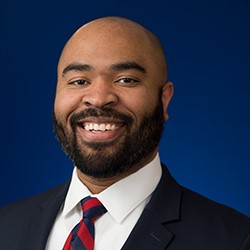
Johmarx Patton
Director of Educational Technology and Standards, AAMC
Johmarx Patton, MD is a scholar and strategist at the intersection of health professions education, healthcare, and information technology. Dr. Patton currently serves as the Director of Educational Technology and Standards at the AAMC, and is responsible for the direction and operations of the MedBiquitous program. MedBiquitous develops enabling technology standards and guidelines that empower health professions education and quality improvement leading to better patient outcomes. Prior to joining the AAMC, Dr. Patton served as the Director of Education Informatics at the University of Michigan Medical School.
-
Contains 2 Component(s)
With the current pandemic of Coronavirus, COVID-19, the global healthcare information technology community has again been challenged to provide evidence-based solutions to aid clinicians in quick, effective clinical guidance.
With the current pandemic of Coronavirus, COVID-19, the global healthcare information technology community has again been challenged to provide evidence-based solutions to aid clinicians in quick, effective clinical guidance. Drs. Hoelscher and Hoelscher will discuss their original doctoral project as well as past interprofessional collaborative efforts between the Centers for Disease Control and Prevention and the Office of the National Coordinator for Health Information Technology to address prior infectious disease threats with the Ebola and Zika viruses. This previous work resulted in significant model development and best practices for an all-hazards approach to fully utilizing health IT resources to minimize risk to the public. The presenters will share how the historical responses to the Zika and Ebola viruses helped to map clinical workflows and rapidly deploy clinical decision support in a large integrated health system in Texas in response to COVID-19.
“MedBiquitous Community Connection” is a series of free one-hour webinars featuring health professions educators and technology innovators from around the globe. “MedBiquitous Community Connection” provides a forum for community experts to share how digital technologies are promoting improvement and better outcomes across the continuum of health professions education. A portion of each webinar will reserve time for a brief Q&A session, allowing attendees the opportunity to dialogue with guest speakers.
-
Contains 2 Component(s)
The Implementation of MedBiquitous Standards in Medical and Healthcare Education - February 25, 2020
This webinar will introduce our experience in the domain of technology-enhanced learning in medical and healthcare education in relation to international guidelines and standards guaranteed by MedBiquitous.
This webinar will introduce our experience in the domain of technology-enhanced learning in medical and healthcare education in relation to international guidelines and standards guaranteed by MedBiquitous. The session will focus on two particular projects: MEDCIN (Medical Curriculum Innovations) and SIMUportfolio. These web-based applications have come with the mission to systemically standardize medical curriculum management systems and to promote innovative methodological background to evaluate, map and compare various curricula. Real demonstration of both platforms together with several use cases will be introduced.
“MedBiquitous Community Connection” is a quarterly series of one-hour webinars featuring health professions educators and technology innovators from around the globe. “MedBiquitous Community Connection” provides a forum for community experts to share how digital technologies are promoting improvement and better outcomes across the continuum of health professions education. A portion of each webinar will reserve time for a brief Q&A session, allowing attendees the opportunity to dialogue with guest speakers. Registration is free and required. Please use your AAMC.org account information to login and register.
-
Contains 2 Component(s)
“MedBiquitous Community Connection” is a quarterly series of one-hour webinars featuring health professions educators and technology innovators from around the globe.
"MedBiquitous Community Connection" is a series of free one-hour webinars featuring health professions educators and technology innovators from around the globe. "MedBiquitous Community Connection" provides a forum for community experts to share how digital technologies are promoting improvement and better outcomes across the continuum of health professions education.
A portion of each webinar will reserve time for a brief Q&A session, allowing attendees the opportunity to dialogue with guest speakers.
Our premiere webinar episode “2020 Vision: The History and Future of MedBiquitous” will feature Dr. Johmarx Patton, AAMC Director of Educational Technology and Standards, and Valerie Smothers, Data Trust Administrator for Johns Hopkins Medicine. Their conversation will highlight MedBiquitous’ illustrious history and the program’s vision for the future.
